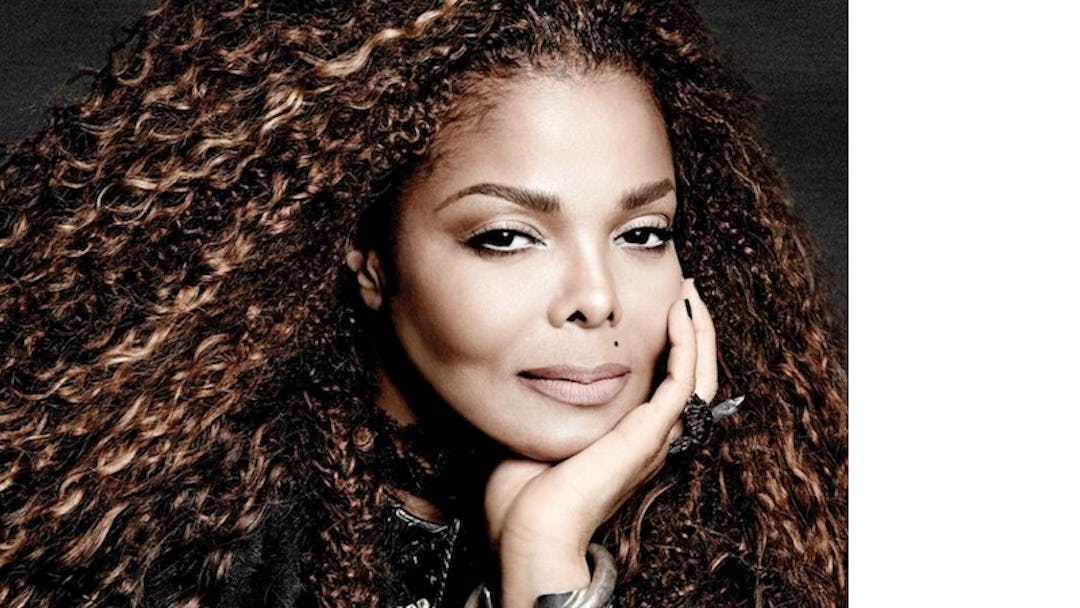It’s been seven long years since the last studio album from Janet Jackson, but with Unbreakable, Ms. Jackson (yes, we are nasty) is back on the campaign trail, making her case as one of the most important women in music. Her trailblazing is clear and evident in today’s biggest pop stars — no Janet means no Queen Bey, no Rih-Rih — as well as more ascendant artists like FKA Twigs and Tinashe. The most direct comparison to Jackson’s career arc is probably Madonna, but Jackson’s is arguably more important than the legendary musical chameleon, and it’s because of what she represents for the agency of women of color in music.
Intersectionality in feminism matters because when progress is made on behalf of women that ends up only benefitting white women, it undermines the very ideas of equality that feminism strives to achieve. Madonna helped demolish barriers to women’s control of their own sexuality, but one can argue that those barriers weren’t truly destroyed until Janet asserted her place in the mainstream.
When Janet sang about “Control” on her 1986 hit single and album, she was talking about more than a leg up in a romantic relationship—she co-wrote seven of the LP’s nine tracks, and co-produced eight. Rihanna and Beyoncé may be less involved in the writing of their songs, but as their careers have blossomed, they have assumed more control in other ways. Regardless of the actual level of their involvement in songwriting, they still have writing credits on the overwhelming majority of the songs, so they’re still collecting those publishing checks.
But it’s their control over their bodies, and the way their image is marketed, that has been most impressive — and draws the closest parallels to Jackson. After some unflattering photos of Beyoncé became meme fodder, she banned professional photographers from her shows, and distributes photos from her personal photographer to the press. When she appeared on the cover of Vogue for its massive September issue, she did so without ever making herself available for an interview.
Rihanna pulled a similar move with the FADER; she took it a step further, however, going so far as to take the actual photo herself — an homage to the influence of her selfies and her massively popular Instagram account. Both of these women saw what happened to Janet at the Super Bowl — when Justin Timberlake threw her under the bus and her rep took a hit while he emerged unscathed — and may have used it as a cautionary tale, exerting more control over their image, for better or worse.
Jackson’s influence on two of today’s biggest stars is evident, but she is not immune to a bit of trend tourism herself. Yet her evolution has always felt earnest rather than forced — you’ll never hear Janet fake an accent — and always more optimistic than cynical. It’s hard to imagine Madonna, Katy Perry, Ke$ha or even Adele going multi-platinum with an album about poverty, war, discrimination like Jackson did with 1989’s Rhythm Nation 1814. And even on this new album, when she channels lamestream EDM with the marching snares on the mostly flat “Shoulda Known Better,” she still cuts with the line “[I] just can’t feel casual about casualties.”
Herein lies the difference between Janet Jackson and Madonna. While Madonna has spent decades chasing youth, doing much of the same type of provocative photography she’s done in the past, making out with younger pop stars for photo ops and name-dropping the drugs du jour, Jackson’s evolution has felt more natural. Rhythm Nation took the New Jack Swing sound in a political, socially aware direction, and when she changed gears four years later on the sexy, soulful Janet, she was leading the direction of pop music, not following it.
Unbreakable as a whole isn’t particularly stunning, though there are some highlights; a guest appearance from Missy Elliott on “BURNITUP!” stands out, as does “Well Traveled,” Jackson’s tribute ballad to her recently deceased brother. And the J. Cole-featuring jam “No Sleep” certainly sounds like a hit, but it doesn’t have a whole lot of company on the 17-track LP. After such a prolonged hiatus the record could be considered a disappointment, but the fact that it feels undeniably like a Janet Jackson record is a testament to her self-assured nature. She wrote and produced the record with her longtime collaborators Jimmy Jam & Terry Lewis, legendary producers not necessarily known for contemporary pop hits in 2015, and at times, it doesn’t sound like anything other than 2015 Janet Jackson. She has nothing to prove, and she knows it.
